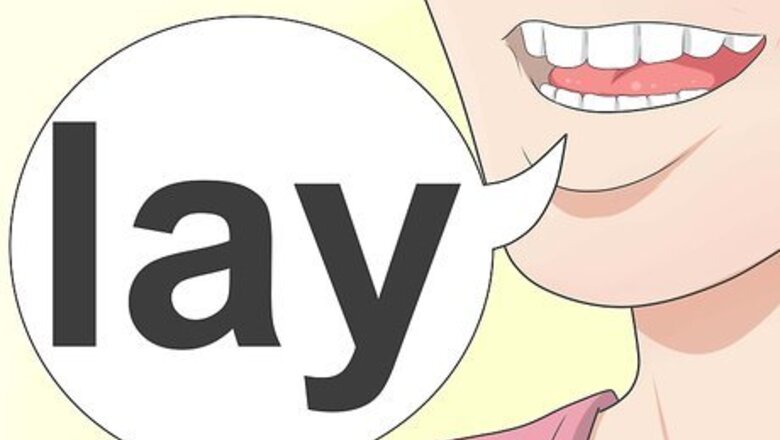
views
X
Research source
Whether you're aiming to speak with a true French accent or just trying to get through the word without embarrassing yourself, you're in luck — it's not hard to pronounce once you get the hang of it.
French Pronunciation
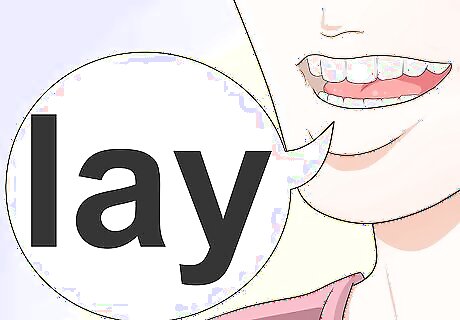
Say "lay." In this section, you'll see how to pronounce every syllable of "Les Miserables" like a true French person. Start by saying the English word "lay", which is very close to the pronunciation of the French word "les." Congratulations — you've already mastered one word! If you want to be extra-accurate, try to pronounce "lay" a little "breathier" than you normally would as an English speaker; almost as if it's a puff of air. French is a very "breathy," nasal language. Listening to a native French speaker can help you imitate this quality.
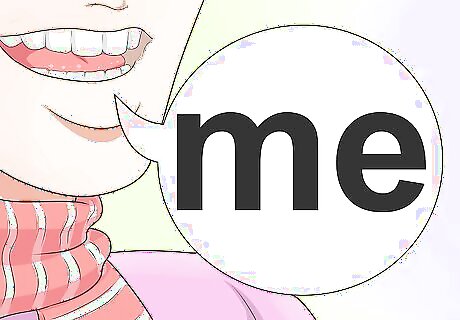
Say "me." In French, the i can be pronounced with a long e sound, so the first syllable of "miserables" will sound very much like the English word "me." Again, keep your pronunciation short and "airy" here.
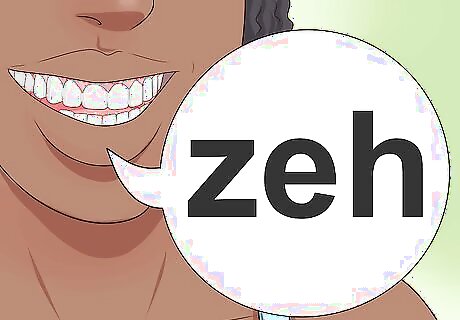
Say "zeh." The second syllable of "miserables" is pronounced similarly to how it would be in English. You want to use a soft s or z sound (as in the word "zero") and follow it with a short e sound (as in the word "bed"). This shouldn't be too difficult.
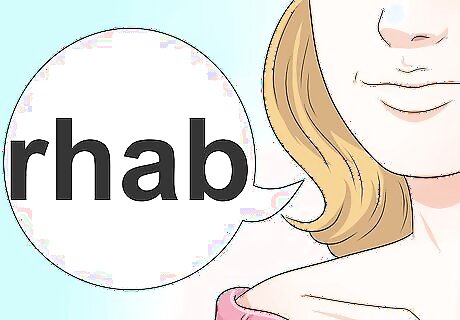
Say "rhab" with an airy r sound at the top of the mouth. The r sound in French can be difficult for non-native speakers to master — if English is your first language, this will probably be the hardest syllable. Forget about changing the standard English r sound into French. You want to make an entirely new sound here. See below for practice instructions: After saying "zeh" (the previous syllable), let air keep flowing through your throat. Without stopping, move the middle-back part of your tongue to the top of your mouth. Let the flow of air get narrow, but don't block it completely. Move your tongue back down. The sound you made should have sounded like a light, "airy" combination between English r and h sounds. After the r, the rest of the syllable is easy. Use the short o sound (like in the English name "Rob"), then end with a b.
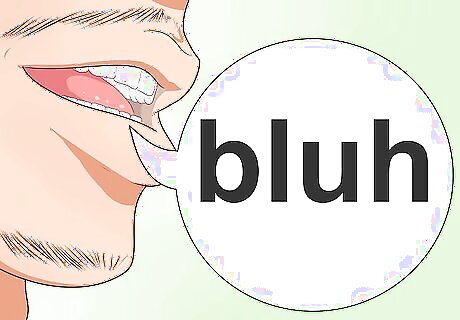
Say a soft "bluh." The final part of the word isn't as hard as dealing with the r, but it can still be a challenge. You want to sound out the syllable "bluh," but, as before, very briefly and lightly. You can also let your lips "bounce" off of each other a little here, giving the sound a "jowelly" quality (almost like the way Droopy the famous cartoon dog talks). It takes some getting used to, but once you get it, it's not impossible, even for someone who's never spoken anything but English. Note that, as with "Les," the final s in "Miserables" is not pronounced.
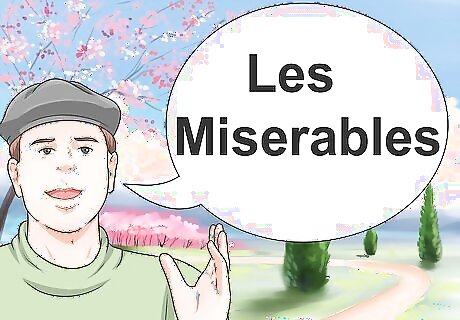
Put it all together! Congratulations — you've just made your way through all of "Les Miserables" (the title, not the 530,000 word novel). Now, all that remains is to practice stringing the syllables above together until you get it perfect! Listening to a native French speaker can really help here. Luckily, there are many pronunciation clips available online. For instance, PronounceItRight.com has an excellent one.
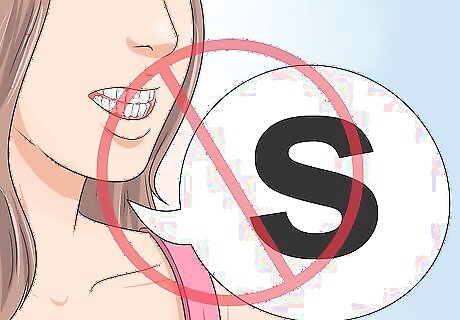
Don't pronounce the s at the end of either word. When anglophones (the French term for "English speakers") try to say "Les Miserables," they usually make one of a few mistakes. Knowing these ahead of time can be a big help. For example, it's important to note that you should not pronounce the s at the end of either "Les" or "Miserables." It's "lay meezerhabluh," not "lez meezerhabluhs." This is a "rookie mistake" for new French speakers, so don't give yourself away by falling for this easy slip-up. In French, an s at the end of a word is silent if the letter before it is a consonant or an e without an accent. This means that there are other French words (like "vis") where you will pronounce the s at the end, so don't get too caught up on this rule.
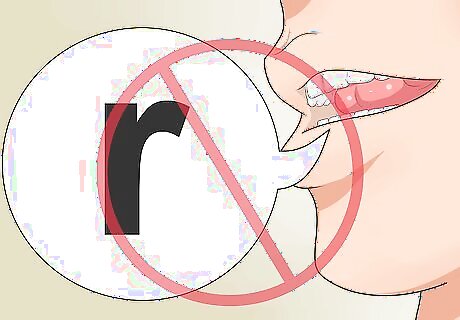
Don't use a standard English r sound. The French r sound is discussed above, but this bears repeating: don't use the "hard" English r sound for "miserables." This sound doesn't exist in French, so putting it in "Les Miserables" will immediately out you as a non-French speaker. If you need more help with the French r sound, don't worry — it's usually the thing that English speakers have the most trouble with, so there are lots of help materials online. For example, try this French pronunciation guide. The r sound examples are about halfway down the page.
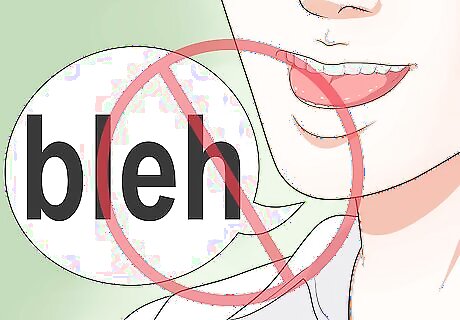
Don't pronounce the ending "bleh" very heavily. This mistake is a little subtler than the ones above, but it's still something to look out for. French words have lots of endings that sound strange to English speakers. In "Les Miserables," the final "bluh" syllable sounds like something should come after it to an English ear because in English words almost never end with "bluh." This can lead English speakers to emphasize the "bluh" a little too much when it should remain light and airy. Remember, you want it to sound like a jowelly puff of air — not like Dracula. Another good example is the French word "chèvre" ("goat"). It's tempting to pronounce it "shever" because in English words end with an "errr" sound, not a light "ruh" sound. In fact, the correct pronunciation is the latter one: "shevruh."
Alternate English Pronunciation

Say "lay." If you don't care about sounding like a real French speaker and you just want to be able to describe the book and musical in English without embarrassing yourself, your job is much easier. The first step is the same for this alternate pronunciation: just say "lay."
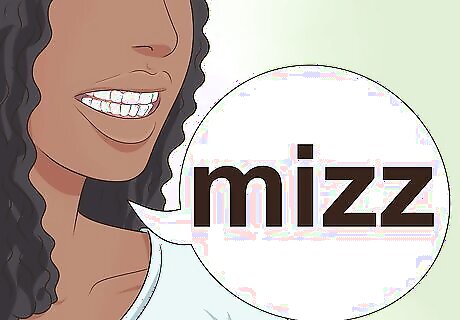
Say "mizz." This sounds like the word "miss," only with a soft s sound. The syllable should rhyme with the word "whizz." You can omit the long e sound you'd normally use in French here.
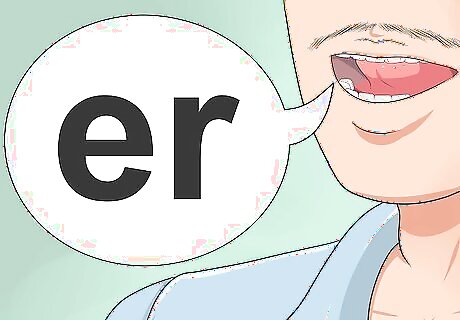
Say "er." This syllable should rhyme with "whirr" or "burr". Feel free to use the standard English "hard r" sound here.
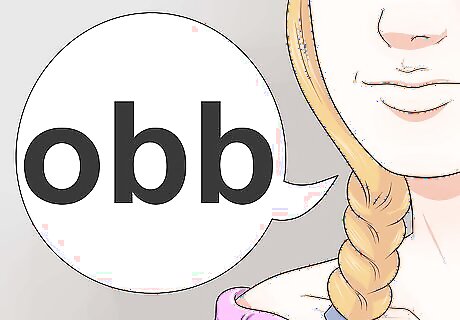
Say "obb." The last syllable should rhyme with "blob" or "mob." Don't bother with the "les" at the end this time — at this point, you've already established that you're not a native French speaker, so trying to add it back in won't help.
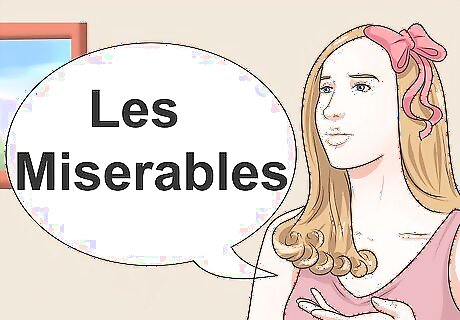
Put it all together! That's all you need to pronounce "Les Miserables" in the anglicized way. Simply string the syllables above together and sound them out: "lay mizzerrobb." Unless you're actually trying to speak proper French, there's no need to be ashamed of this anglicized pronunciation, as it's the way most English speakers choose to say the words. Even with this easier pronunciation in wide use, some English speakers still use different pronunciations of "Les Miserables." See this video for a humorous rundown of the ways that Americans, British people, and actual French speakers pronounce the word.

















Comments
0 comment